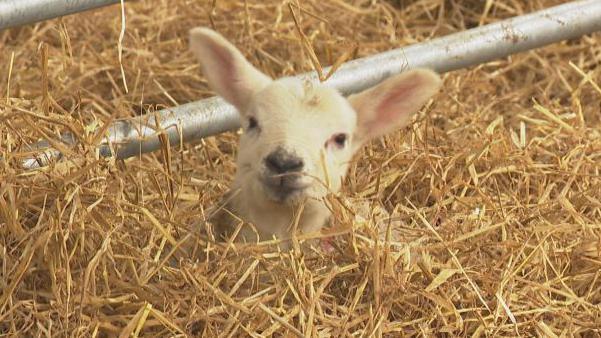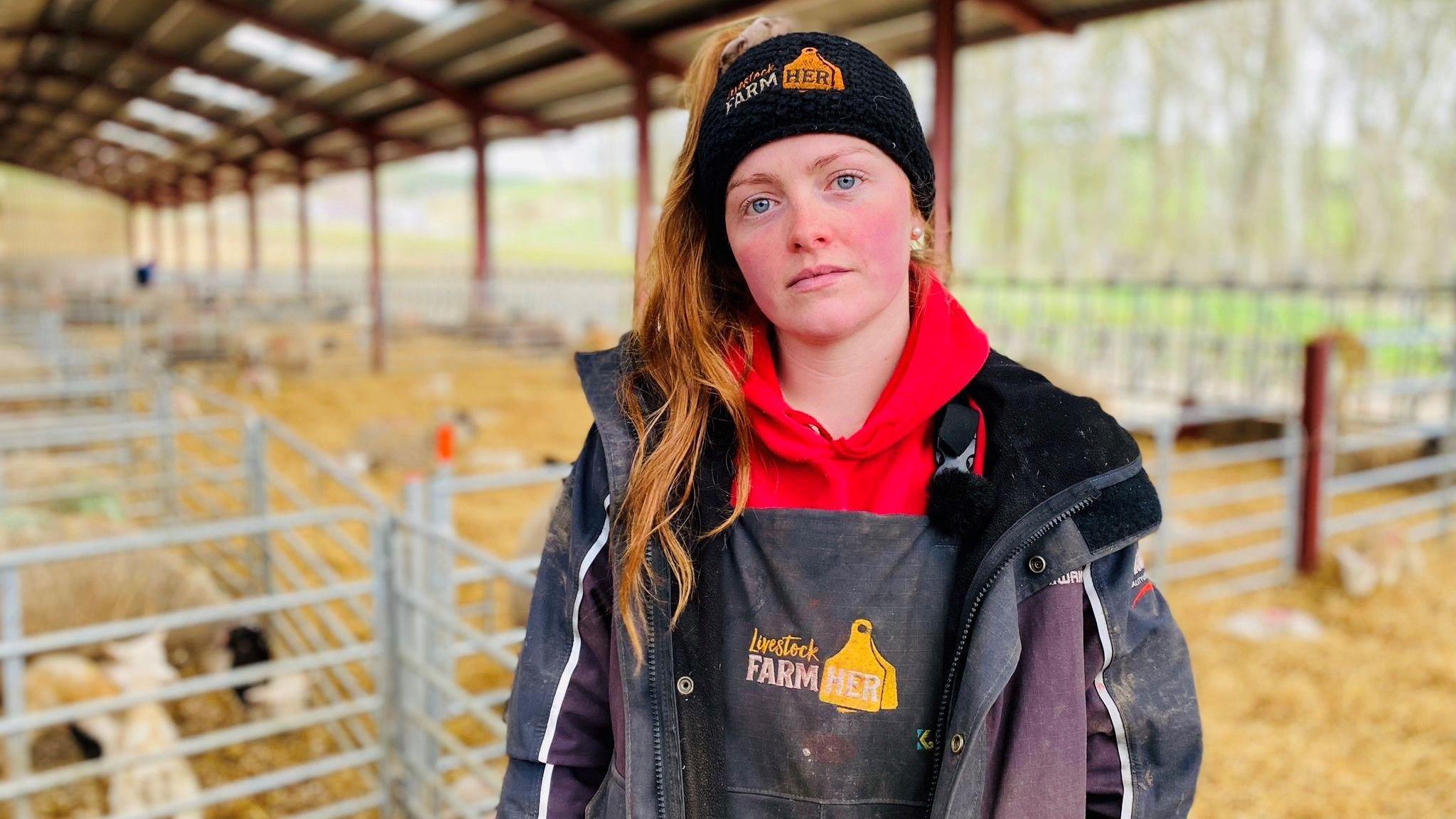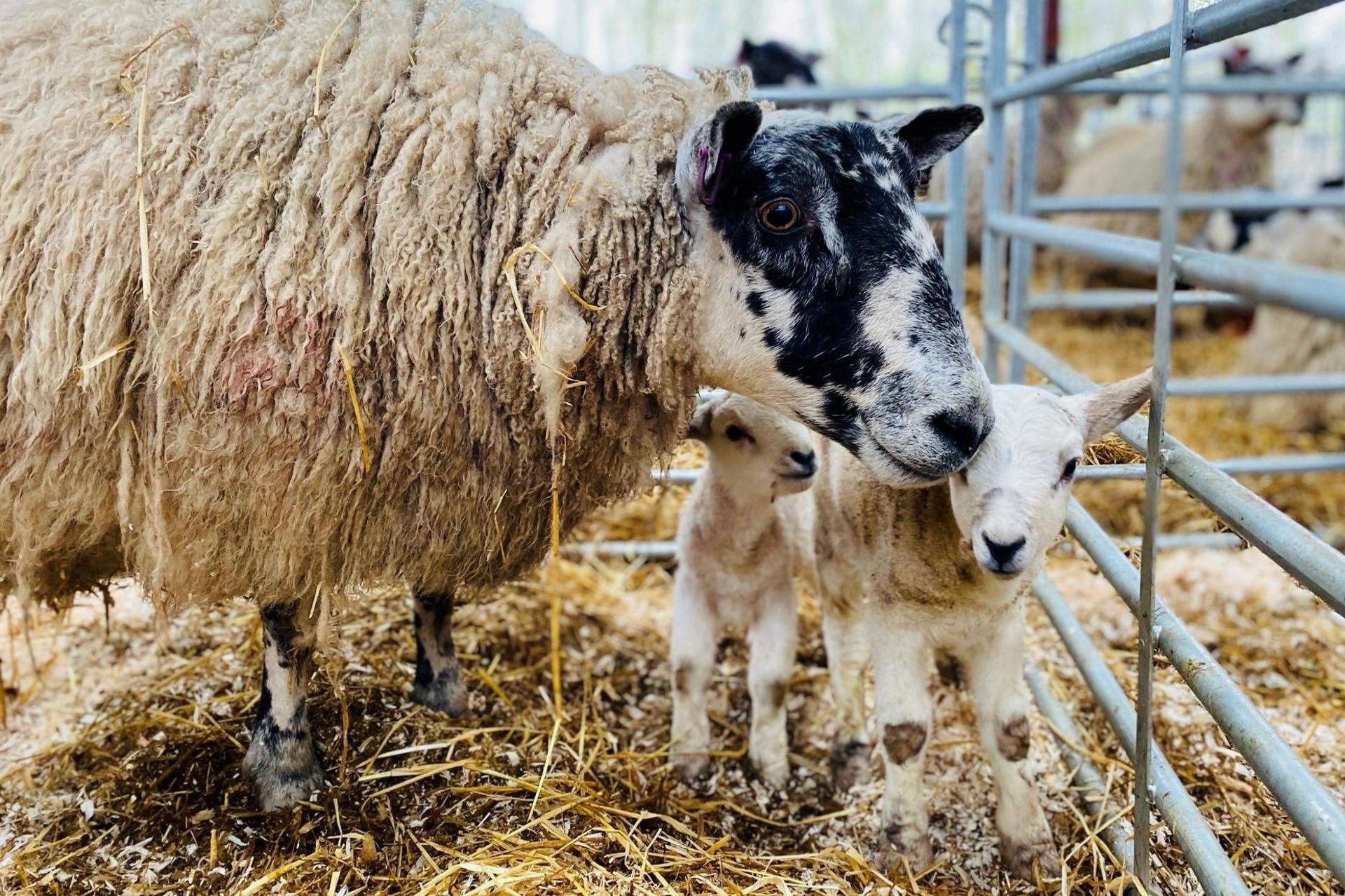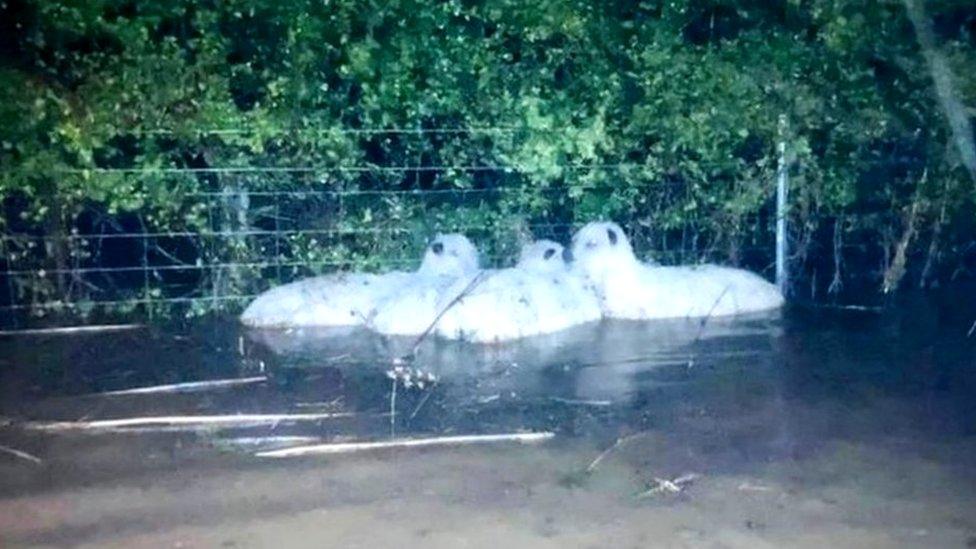Wet weather devastating for lambing, farmers say

Lambing is one area of farming being impacted by the bad weather
- Published
Heavy rainfall is having a "devastating" impact on lambing and crops, farmers have warned.
If lambs do not have dry ground to lie on, hypothermia often affects newborns and can be fatal.
Provisional Met Office figures for winter 2024 show higher than average rainfall across the UK, particularly in the north east of Scotland where farming is widespread.
One farmer, Nicola Wordie, of Aberdeenshire, said a lot of lambs were going to be lost due to the weather.

Nicola Wordie said it was a difficult time for farmers
She told BBC Scotland News: "Unfortunately I would love to keep them all inside and protect them from this weather, but we don't physically have the space.
"We are very fortunate to have extra (indoor shed) space this year. How we would have managed previously I don't know.
"But we are able to keep some of them in for slightly longer. But unfortunately the strongest have to go outside."
'Plays on your mind'
According to the Met Office the UK provisionally recorded 445.8mm of rainfall this winter - which is 129% of the 1991-2020 average and the eighth wettest winter.
Its rainfall map, external shows that much of north east Scotland was particularly wet, with Moray, Aberdeenshire and Angus all hit with rainfall well above the seasonal average.
Ms Wordie, who is based near Huntly, said: "It's just been constant. We're now into April and we're still getting it - it's still cold, it's still wet.
"We can't get any work done, we can't get any ploughing done, we can't get our crops in the ground, everything is starting to pile up.
"It's becoming really challenging. Every day you're dreading to think what's going to happen, how bad it's going to be. It plays on your mind a lot."

Livestock cannot all be kept inside all the time despite the conditions
National Farmers Union (NFU) Scotland president Martin Kennedy said the weather was having a "devastating" impact.
He told BBC Scotland News that winter and spring crops were suffering.
The warning came as NFU Scotland launched its manifesto ahead of a general election.
"There's challenges with all governments but one thing they can't do is change the weather," he said.
"But they need to be able to facilitate us to be able to adapt to that."
In October NFU Scotland highlighted that farmers in Aberdeenshire and Angus had been blighted by the effects of Storm Babet, including a loss of crops.
Ms Wordie said the financial impact of weather was still being felt as it had delayed getting seeds into the ground and therefore caused delays to the overall crop at the end of the year.
On lambing, she said no matter when the season starts farmers were being hit by weather.
"I think we're going to have to spend more on concentrated feeds because there's no grass growing," she said.
"It's not just ourselves - this is across the country, everyone is feeling it. It's important for farmers to feel like they're not alone because there's dark days. You just have to keep digging deep, it's relentless.
"There's no real miracle answer. When is it going to improve?"
Related topics
- Published23 October 2023
